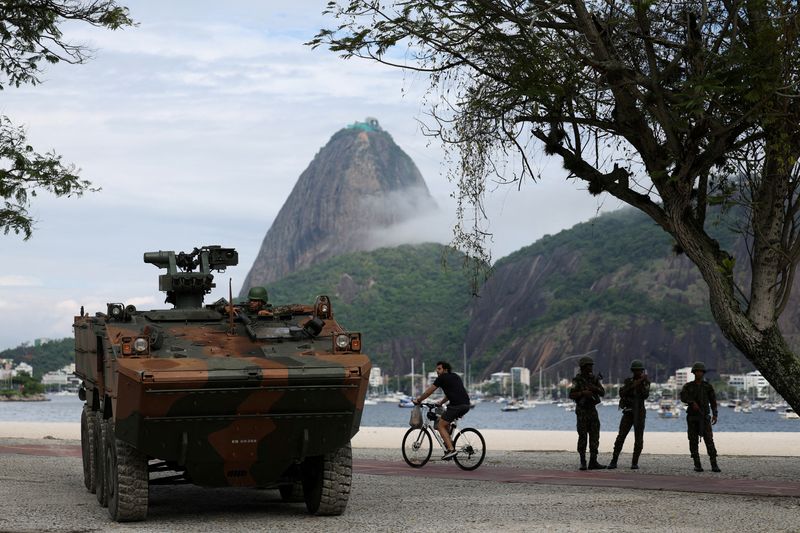Troops, armored cars and patrol boats protect G20 summit

RIO DE JANEIRO (Reuters) – Brazil has deployed troops, armored vehicles and naval ships to reinforce security around the summit of leaders from the Group of 20 major economies who meet on Monday and Tuesday at Rio de Janeiro’s bayside Museum of Modern Art.
Air traffic, including the use of drones, has been restricted and flights canceled for two days at the domestic Santos Dumont Airport nearby.
Authorities are taking no chances after a failed bomb attack on Brazil’s Supreme Court in the capital Brasilia on Wednesday. Police said a right-wing activist killed himself with explosives outside the court after trying to enter with a homemade bomb.
Army soldiers patrolled the vicinity of the museum, streets were closed off to traffic and armored cars parked outside the building where G20 leaders will gather.
Naval boats patrolled the scenic Botafogo Bay between the museum and Rio’s iconic Sugarloaf Mountain, while marines ran ashore from landing craft on an adjacent beach.
“We can deploy troops very quickly from our naval base by using the sea as an access route if we need to reinforce security here,” Marine Captain Goncalves Maia told reporters.
Federal police said they swept the museum for bomb risks and positioned snipers around the building to protect the 84 leaders and ministers expected to attend the summit.
The government implemented a so-called Guarantee of Law and Order measure that allows temporary deployment of military forces during the summit with the power to detain and arrest any suspect.
“We are operating at the highest level of security possible given the stature of the foreign authorities that will be here,” said Federal Police Director Andrei Rodrigues.
A security force of 26,000 members, including 2,900 military personnel, will police the area and protect the summit venue.
(Reporting by Renato Spyrro, Janaina Quinet and Lisandra Paraguassu in Rio de Janeiro, writing by Anthony Boadle, editing by Brad Haynes and Sandra Maler)